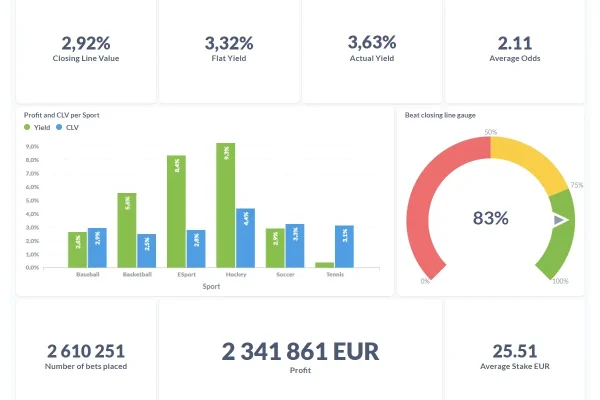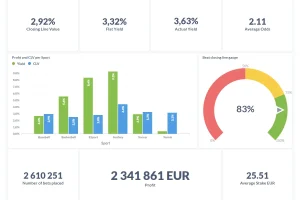The cognitive approach to gambling maintains that problem gamblers continue to gamble due to false beliefs about their chances of success, which are perpetuated through cognitive distortions such as personal luck self-attributions or overlooking decision outcome probabilities.
Recent neuroimaging studies have demonstrated that these distortions use an evolved reward system in the brain to learn skill-oriented behavior. They lead to anomalous recruitment of existing reward systems such as vmPFC and ventral striatum which result in anomalous reward recruitment patterns.
Probability
Probability, one of the fundamental concepts in statistical analysis, enumerates the likelihood that something will take place. It plays an essential role in weather forecasting and gambling – two areas in which understanding probability can prove immensely valuable. An understanding of probability is one of the most essential and useful life skills anyone can possess.
Gamblers frequently misinterpret and misunderstand probability in various ways, often resorting to cognitive distortions as justification for continuing gambling behavior. Examples of such distortions are active and passive illusory control as well as believing they can alter or predict game outcomes (probability control). Studies have found these distortions more frequently occur among players playing games with potential skill components.
Researchers are studying how the brain’s reward system promotes false beliefs about probabilities and randomness. Studies have revealed that people who experience monetary wins demonstrate consistent patterns of activity in an area known as the striatum that also responds to natural reinforcement such as food or sexual stimuli as well as drugs of abuse like cocaine.
Researchers are conducting studies to see whether similar patterns of brain activity exist among gamblers and non-gamblers alike. To do this, they are monitoring brain activity of volunteers as they make numerical evaluations of verbal probabilities associated with gambling games and place bets on these same gambles. Positive affect has an influence on how individuals evaluate and select verbal probabilities; specifically participants induced with positive affect overestimated the probabilities associated with phrases that describe winning more frequently compared with their estimates for losses.
Odds
Odds are ratios and numbers that show how likely an event is. They’re used extensively in gambling, statistics and sports betting – for instance when gambling on coin tosses and horse races with 50/50 probability; thus allowing bets on either outcome. Although traditions have developed regarding how odds are displayed – either fractionally or proportionally – odds all represent rational numbers; furthermore they’re connected to probabilities through simple ratios; changing either term changes their proportions; wagers against an outcome changes them back up to 1:1; vice versa!
Pathological gambling’s causes may extend far beyond financial factors alone, yet a recent study demonstrates that wins on gambling platforms trigger parts of the brain reward system that responds to food, sexual stimuli and cocaine abuse as natural reinforcers – possibly contributing to ongoing play through an enhanced sense of control and creating false feelings of control over our actions.
Even so, many gamblers believe they can devise a successful betting system by trying to identify patterns in random numbers and engaging in ritualistic behaviors before placing bets. However, these strategies usually prove ineffective over the long-term and may make the gambler even more susceptible to addiction. Dr Luke Clark from Cambridge’s Wolfson Brain Imaging Centre is conducting ongoing research using functional magnetic resonance imaging to measure patterns of brain activity while volunteers participate in a gambling game. He is exploring the effects of near-misses and personal choice on gamblers’ perceptions of their chances of success in gambling games, in an attempt to understand how these features create an illusion of control for gamblers, leading them to continue gambling in order to recoup debts accumulated while gambling.
Betting systems
Gambling is a complex behavior and many different features of gambling games contribute to its upkeep. One such feature is people’s faulty understandings about probability and randomness which lead them to overestimate their chances of winning and make them believe they are in control of their gambling behavior. This cognitive approach offers significant explanatory power and fits with classic studies showing people are bad at generating and recognising random sequences (Tversky & Kahneman 1971; Wagenaar 1972). Near-miss effects and personal choice foster these distorted beliefs furthering this complex behavior – and many features of gambling games foster this distorted beliefs furthering this type of thinking such as near miss effects and personal choices which also support such beliefs fostering this complex behavior.
Dr Luke Clark is studying the influence of various factors on gambling behavior using functional magnetic resonance imaging (fMRI). His research has uncovered evidence suggesting that near-miss effects and personal control effects are related to anomalous recruitment of components of the brain’s reward system.
Gamblers tend to select their betting events and items based on their personal preferences, making it hard to separate out how different aspects of gambling contribute to decisions made when gambling. Furthermore, most population surveys and gambling company data do not contain event or item level details and cannot address this issue directly.
Illusion of control
People tend to make errors when processing probabilities and assessing randomness. Gambling games play into this weakness by giving a false sense of control, leading them to keep gambling even when their odds of winning have decreased; and some even use supernatural sources like luck or God as sources of control (CrockerCrocker 1981).
Many of us believe we have the ability to manipulate the odds in our favor by employing specific strategies or rituals, leading us to be more confident of success after experiencing repeated near misses that would seem like full losses to non-gamblers. This illusion of control may explain why so many gamblers find their losses unfathomable and immoral.
As noted above, another factor influencing illusion of control is personal choice. For instance, gamblers who can select their roulette bets will place higher bets than those assigned at random. Lottery players also prefer picking their ticket themselves rather than receiving one randomly; their preference can even extend so far that participants refuse to exchange chosen tickets with ones offering greater chances of success.













